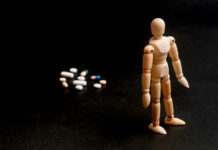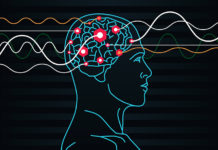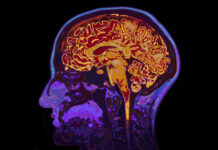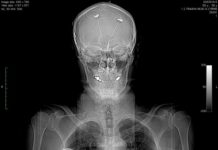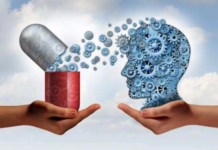Psychodynamic Therapy Revealed to be as Efficacious as Cognitive Behavioral Therapy
Meta-analytic study finds that psychodynamic therapy outcomes are equivalent to those of CBT and other empirically supported treatments.
Peer-Support Groups Were Right, Guidelines Were Wrong: Dr. Mark Horowitz on Tapering Off Antidepressants
In an interview with MIA, Dr. Horowitz discusses his recent article on why tapering off antidepressants can take months or even years.
Researchers Search for Subgroups Where Antidepressants Are More Effective
The researchers theorized that this increased effectiveness was due not to “antidepressant” properties, but rather to the drug’s side effects, which include insomnia, drowsiness, and nausea.
Starvation: What Does it Do to the Brain?
The Minnesota Starvation Experiment was conducted at the University of Minnesota during the Second World War. Prolonged semi-starvation produced significant increases in depression, hysteria and hypochondriasis, and most participants experienced periods of severe emotional distress and depression and grew increasingly irritable. It really should not be a surprise to this audience that the brain’s functioning is highly compromised when the body is being starved of food (and nutrients). What we wonder is whether eating a diet of primarily highly processed foods low in nutrients has similar effects.
Suicide in the Age of Prozac
During the past twenty years, the American Foundation for Suicide Prevention and American psychiatry have adopted a "medicalized" approach to preventing suicide, claiming that antidepressants are protective against suicide. Yet, the suicide rate in the United States has increased 30% since 2000, a time of rising usage of antidepressants. A review of studies of the effects of mental health treatment and antidepressants on suicide reveals why this medicalized approach has not only failed, but pushed suicide rates higher.
Victim Blaming: Childhood Trauma, Mental Illness & Diagnostic Distractions?
Why, despite the fact that the vast majority of people diagnosed with a mental illness have suffered from some form of childhood trauma, is it still so difficult to talk about? Why, despite the enormous amount of research about the impact of trauma on the brain and subsequent effect on behaviour, does there seem to be such an extraordinary refusal for the implication of this research to change attitudes towards those who are mentally ill? Why, when our program and others like it have shown people can heal from the effects of trauma, are so many people left with the self-blame and the feeling they will never get better that my colleague writes about below?
Metacognitive Training (MCT): A New Treatment Approach for Delusions
Since psychosis does not occur instantaneously and suddenly, but is often preceded by a gradual change in the appraisal of one’s cognitions and social environment, empowering metacognitive competence may act prophylactically to prevent or hinder a psychotic breakdown.
Neurofeedback is Not For Everyone: The Dangers of Neurology
One thing I noticed, from the moment that I stepped out of my psychiatrist’s office, was how strangely blank and yet clear my mind was. I felt surprisingly calm and relaxed, and I decided to go back for another treatment the next week. What I couldn’t have known then was that after that next “treatment,” life would be completely destroyed for me.
Challenging the New Hype About Antidepressants
The extraordinary media hype over the latest meta-analysis of antidepressants puts the discussion of these drugs back years. Despite the fact that rates of prescribing have doubled over the last decade, the authors of the analysis are calling for yet more prescribing. But this latest meta-analysis simply repeats the errors of previous analyses.
Hereditary Madness? The Genain Sisters’ Tragic Story
The story of the Genain quadruplets has long been cited as evidence proving something about the supposed hereditary nature of schizophrenia. But who wouldn’t fall apart after surviving a childhood like theirs? The doctors attributed their problems to menstrual difficulties or excessive masturbation — anything except abuse.
The Conflicts That Result From Globalizing Euro-American Psychology in India
Researchers examine the transformation of work, life, and identity in India as a result of Western corporate and psychological culture.
Lancet Psychiatry Needs to Retract the ADHD-Enigma Study
Lancet Psychiatry, a UK-based medical journal, recently published a study that concluded brain scans showed that individuals diagnosed with ADHD had smaller brains. That conclusion is belied by the study data. The journal needs to retract this study.
UPDATE: Lancet Psychiatry (online) has published letters critical of the study, and the authors' response, and a correction.
Waiting for Gravity
Of course one wishes for an easy answer, but the things that conspire to drive a person over the edge are too numerous and varied ever to point and say, it was this one; one can never really be so certain. No one can say it wasn’t that one, or that it wasn’t really all of those together, or that, when it came my own turn for “insanity,” I wasn’t standing halfway over the edge already, waiting for gravity to kick in and for me to fall.
Transcranial Magnetic Stimulation No Better Than Placebo for Treatment-Resistant Depression
A new study in JAMA Psychiatry found that transcranial magnetic stimulation was no better than placebo for treatment-resistant depression.
Adverse Effects: The Perils of Deep Brain Stimulation for Depression
Hundreds of people have been given remote control deep brain stimulation implants for psychiatric disorders such as depression, OCD and Tourette’s. Yet DBS specialists still have no clue about its mechanisms of action and research suggests its hefty health and safety risks far outweigh benefits.
Study Finds Hearing Voices Groups Improve Social and Emotional Wellbeing
Hearing Voices Network self-help groups are an important resource for coping with voice hearing, study finds.
The Scientism of Attention Deficit Hyperactivity Disorder (ADHD)
Calling ADHD a diagnosis, i.e., something with the capacity to explain the behaviours that it describes, is like saying the headache is causing the pain in my head or the inattention is caused by inattention. Scientism has turned ADHD from a vague, difficult to pin down concept into a fact of culture masquerading as a fact of nature.
Risk of Suicide After Hospitalization Even Higher Than Previously Estimated
New analysis of post-discharge suicide rates finds estimates 6 times higher than recent studies.
Traditional South African Healers Use Connection in Suicide Prevention
Study finds that traditional healers in South Africa, whose services are widely used by the country’s population, perform important suicide prevention work.
Is Long-term Use of Benzodiazepines a Risk for Cancer?
A large study of the population in Taiwan reveals that long-term use of benzodiazepine drugs, commonly prescribed for anxiety, significantly increases the risk for brain, colorectal, and lung cancers. The research, published open-access in the journal Medicine, also identifies the types of benzodiazepines that carry the greatest cancer risk.
Is an Ominous New Era of Diagnosing Psychosis by Biotype on the Horizon?
When former NIMH chief Dr. Thomas Insel speaks, people listen. Dr. Insel famously criticized the DSM a couple of years ago for its lack of reliability. He notably broke ranks with the APA by saying there were no bio-markers, blood tests, genetic tests or imaging tests that could verify or establish a DSM diagnosis of schizophrenia, bipolar or schizoaffective disorder. However in a new article he announces research that claims to have found bona-fide physiological markers that identify specific "biotypes" of psychosis. This system could, purportedly, identify a person as possessing a specific biotype of psychosis, instead of a DSM-category diagnosis.
Antidepressants Do Not Prevent Suicides, May Increase Risk
When the CDC released data revealing an increasing suicide rate in the US, some experts, speaking to major media outlets, speculated that the increase...
Cognitive-Behavioral Therapy Halves the Risk of Repeated Suicide Attempts
A new study suggests that cognitive-behavioral therapy (CBT) may halve the likelihood of re-attempting suicide, for those who have attempted in the past.
On the Link Between Psychiatric Drugs and Violence
One of psychiatry's most obvious vulnerabilities is the fact that various so-called antidepressant drugs induce homicidal and suicidal feelings and actions in some people, especially late adolescents and young adults. This fact is not in dispute, but psychiatry routinely downplays the risk, and insists that the benefits of these drugs outweigh any risks of actual violence that might exist.
Contribution of Antipsychotics to Suicidality and Depression
Peter Lehmann reviews the contribution of antipsychotics to suicide and depression in schizophrenia in the current International Journal of Psychotherapy. Publications about the intrinsic effects of...





